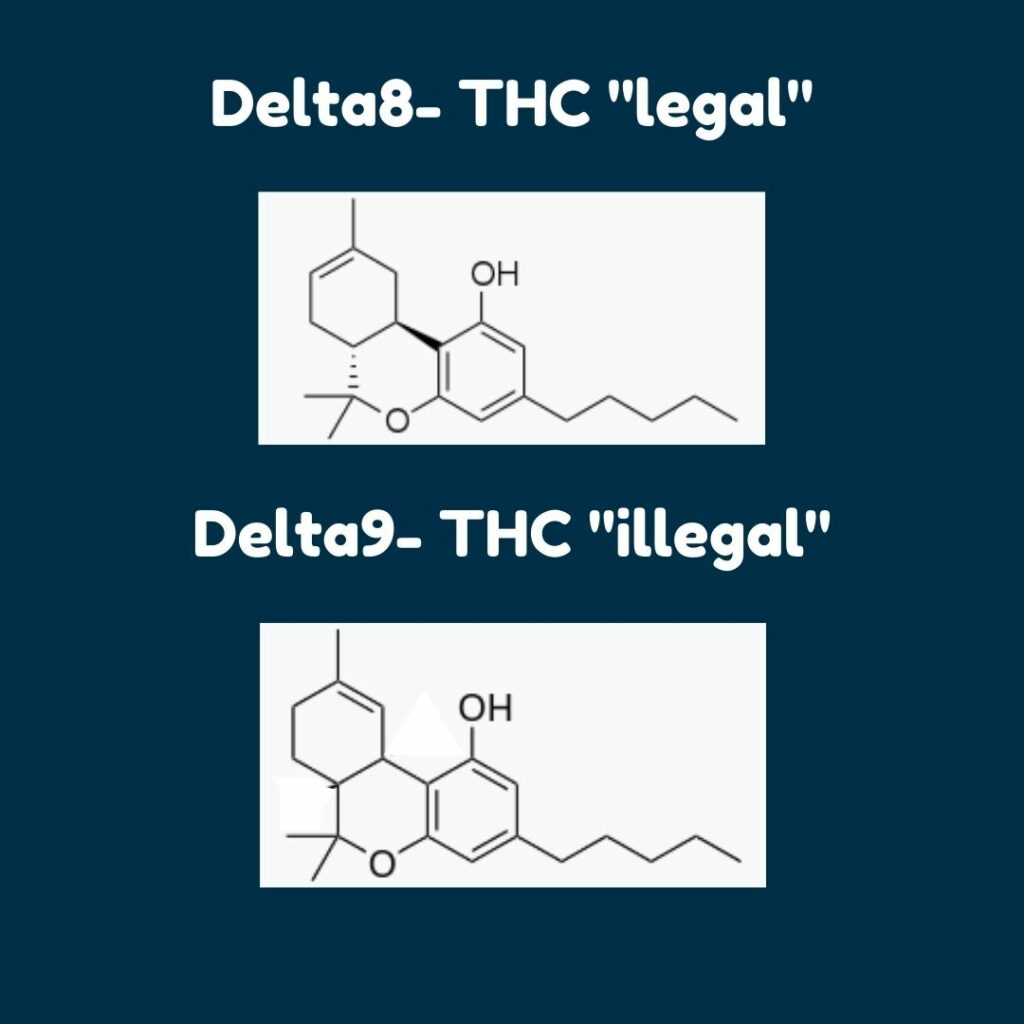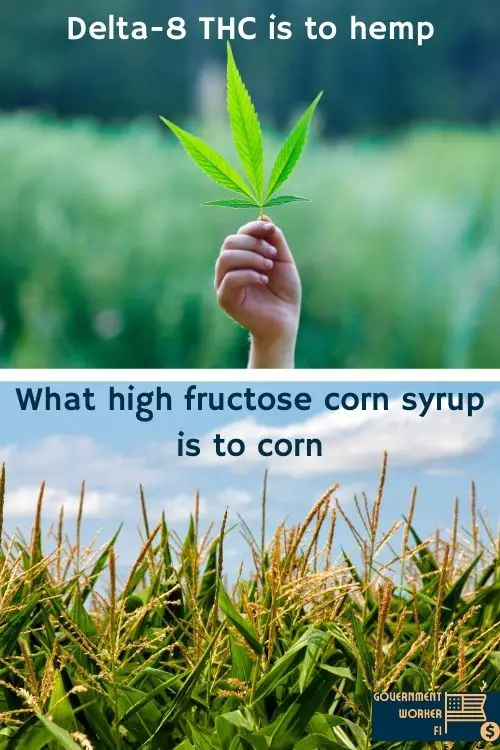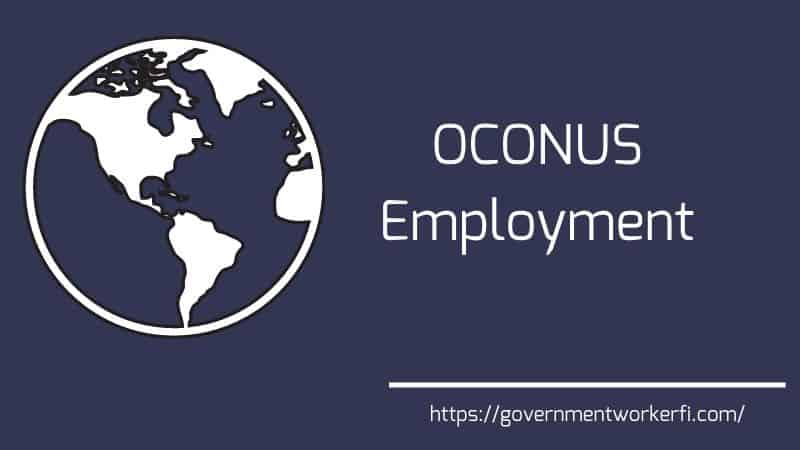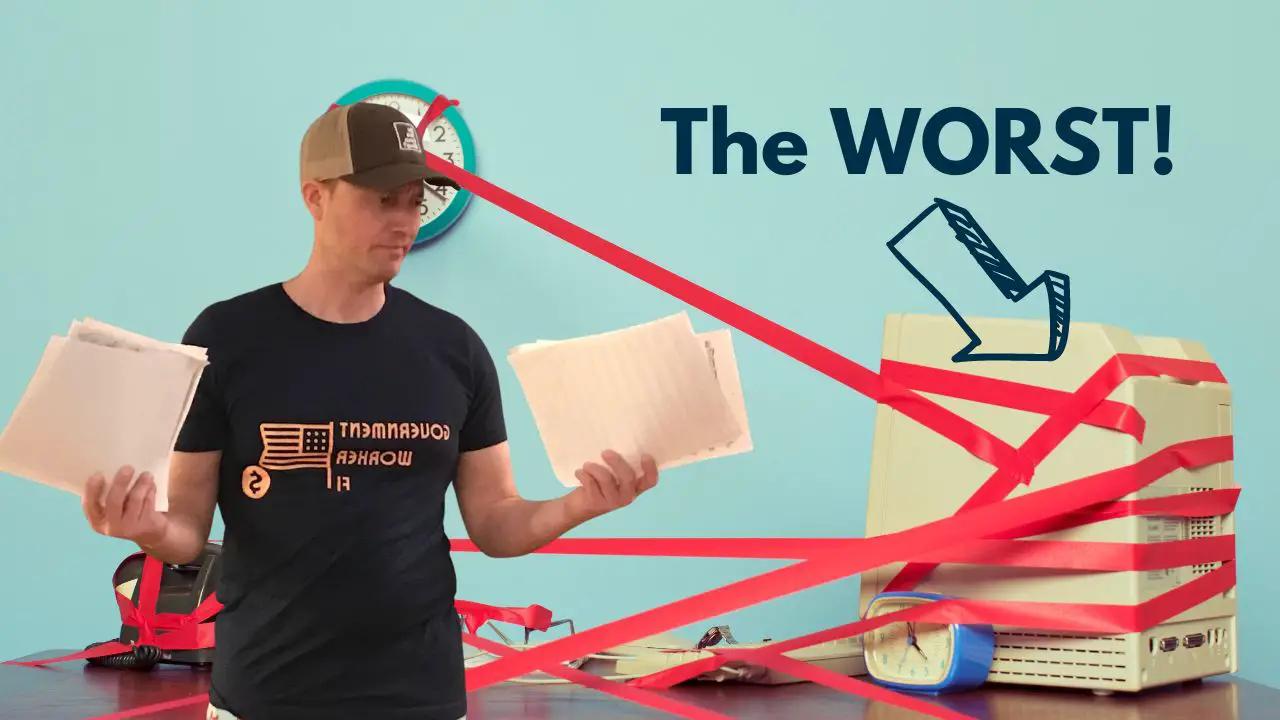The other day someone in the neighborhood was telling me about the new “pot shop” down the street.
At first, I assumed that he meant another store selling CBD products, but he insisted that the store was selling some kind of new legal weed.
I had no idea what he was talking about since we have one of the most conservative state legislatures in the nation. There’s no way our state would legalize pot (even by accident).
So I went to the store to check it out. And indeed- the store is filled with “THC” edibles. However, they’re apparently legal since they use an isomer of THC called “Delta-8 THC” or Δ8-THC.
As someone with a PhD in a chemistry adjacent field, the legality of Delta-8 THC kind of blew my mind.
If you’re a federal employee who wants to investigate Delta-8 THC and are looking for more information, I’ve tried to compile the most comprehensive guide possible.
Get Gov Worker’s top 4 tips for federal employees!Table of Contents
- What is Delta-8 THC and how is it different from the THC in weed?
- How is Delta-8 THC even legal in the United States?
- Can I get high from Delta-8 THC?
- Can federal employees use Delta-8 THC?
- Will Delta-8 THC show up in my federal employee drug test?
- Summary- Δ8-THC and federal employment don’t mix
Please do not confuse my personal blog for financial advice, tax advice or an official position of the U.S. Government. This post may contain affiliate links. If you make a purchase after clicking on a link, I get a small percentage of the sale at no additional cost to you.
Please be careful when mixing drugs (of any kind, including alcohol) with a federal job. This post is solely informational.
What is Delta-8 THC and how is it different from the THC in weed?
If you’re reading this post, I’m assuming that you know that there is a chemical called tetrahydrocannabinol (THC) in marijuana that makes you high. Technically, when most people say “THC” they are actually referring to “Delta-9 THC” or Δ9-THC.
To explain what Delta-8 THC is and how it is (ever so slightly) different from what makes you high in weed (Delta-9 THC) we need to cover a little bit of organic chemistry. Don’t worry, I promise it’s worth it.
Organic chemistry is the study of stuff made out of carbon atoms, which is pretty much everything in the natural world. Carbon is unique in that it likes to bond to itself and to other molecules like hydrogen, nitrogen, and oxygen without too much fuss.

These carbon/hydrogen/nitrogen/oxygen atoms like to form chains with weird shapes. So organic chemists like to describe molecules (groups of atoms) two different ways. They can either write a chemical formula (like H2O) or draw a little diagram showing all of the bond positions.
Sometimes, you can have the same number of carbon/hydrogen/nitrogen/oxygen bonds in a molecule but they are arranged differently. When this happens it is called an isomer. Isomers have the same chemical formula but are different molecules because the bonds are arranged differently.
Both Delta-8 and Delta-9 THC have the same chemical formula: C21H30O2. If you look carefully at the chemical structures you can see that there is just one difference between these two molecules- the position of the double bond in the cyclohexane ring is different. (For those people allergic to chemistry, this means that there are 2 lines in the hexagon in the top of the picture. If it is on the top left, it’s Delta-8 THC and if it is on the top right, it’s Delta-9 THC.)
You don’t need to be a master chemist to see that these molecules are nearly identical. In fact, even our body has a hard time telling the difference between Delta-8 and Delta-9 THC. As a result, Delta-8 THC gives similar sensations to marijuana use, although Delta-8 THC is thought to be slightly less potent.
How is Delta-8 THC even legal in the United States?
So now that you understand how similar Delta-8 THC is to “real” THC, you might assume that it is just as illegal as the pot you bought from the creepy old guy that hung around your college dorm.
Surprisingly, you’d be wrong.
The 2018 farm bill changed the rules regarding industrial hemp. It may surprise you to learn that the marijuana plants can produce useful industrial fibers called hemp. Europe has found many uses for hemp fibers- including carbon negative insulation. While both hemp and weed are grown from the same genus/species of plant, they have been selectively bred for different purposes. Recreational pot plants have been tweaked to produce high amounts of (Delta-9) THC whereas industrial hemp has been bred to increase fiber yields.
Prior to the 2018 farm bill, you could not grow any sort of hemp/marijuana plant in the United States (I’m sure the Puritans who founded this country were proud). However, the 2018 farm bill legalized the growing of hemp so long as it has less than 0.3% of Delta-9 THC.
Industrial hemp vs. Delta-8 THC
So what happens when you pass a law allowing people to grow and sell hemp products with less than 0.3% Delta-9 THC? Stoner-capitalists figure out a way to use this loophole to get rich from hemp.
While hemp contains non-psychoactive amounts of Delta-9 THC and Delta-8 THC, that hasn’t stopped entrepreneurs from figuring out a way to make money from Delta-8 THC products.
Producers are currently taking the industrial hemp and running it through some sort of chemical conversion concentrating process to extract the Delta-8 THC from the plants and then selling it to consumers.
While Delta-8 THC is sold as “natural” because it comes from plants, that’s kind of like saying that high-fructose corn syrup is natural because it comes from corn.
Also- the way the 2018 Farm Bill cleared the way for any hemp product that contains less than 0.3% Delta-9 THC, there is almost no regulation on Delta-8 THC products. When you take Delta-8 products, you’re not really sure what you’re eating (besides the sour-patch kid they dipped in the hemp oil). In fact, there have been cases of people getting arrested for having hemp gummies that exceed the legal limit of 0.3% Delta-9 THC.
Currently, the way Delta-8 is regulated it is treated the same as any other hemp product. So just as you can buy hemp fibers, you can buy Delta-8 hemp gummies. From what I can tell, you can also ship it through the mail. Don’t believe me? Just google “Delta-8 gummies shipped to me”. Insane- right?
Can I get high from Delta-8 THC?
If I were a real blogger, I would do some “blog research” and eat some Delta-8 THC gummies and give you a status report.
Unfortunately, I’m 99% sure that writing a post about my hemp edible adventure would be a sure ticket for a federal employee drug test under the reasonable suspicion clause.
Also- I’ve been sober for several years now and have no desire to ingest any mind altering substances of any kind (☸️🙏).
But according to people in my neighborhood, Delta-8 gummies are amazing. And way easier and less sketchy to obtain than illegal weed.
Can federal employees use Delta-8 THC?
So we’ve covered that Delta-8 edibles are kind of legal through this loophole in the 2018 Farm Bill, and that they can make you high because your body reacts to Δ8-THC in a similar manner to Δ9-THC, we come to the next logical question.
Can federal employees use Delta-8 THC products to get high?
The answer is almost certainly “no”.
For an explanation why, you can read this departmental memo from the USDA. Federal employees must still comply with the Federal Drug Free-Workplace Program as mandated by Executive Order 12564 and Public Law 100-71 and implemented according to the Substance Abuse and Mental Health Services Administration’s (SAMHSA) drug tests. While they note that hemp products are legal so long as they contain less than 0.3% Δ9-THC, they note that these hemp products are not regulated and sometimes contain high amounts of THC. Furthermore, there is “no legitimate medical explanation for a
marijuana positive test result“.
So basically- if you test positive for marijuana in your federal employee drug test, you’re screwed. Regardless of whether you consumed a Delta-8 gummy worm or smoked a joint.
Will Delta-8 THC show up in my federal employee drug test?
Delta-8 THC will almost certainly show up on your federal employee drug test for two reasons:
- Delta-8 THC edibles are made by concentrating hemp products and are not required to be tested for Delta-9 THC. The edibles you consume could unknowingly contain illegal amounts of Delta-9 THC.
- The SAMHSA drug test does not test for Delta-9 THC but instead “marijuana metabolites” in your urine.
If you read the Mandatory Guidelines for Drug Testing in the Federal Register, you will see that they test for “marijuana metabolites” as part of the federal drug testing with a cutoff of 50 ng/mL. The metabolite they look for is Tetrahydrocannabinolic acid or THCA.
Whether you take Δ8-THC or Δ9-THC, your body is going to break the molecule down and it will pass with your urine. Since the drug test is not specific to Δ9-THC and instead looks at THC metabolites in your urine, you are likely to produce THCA in your urine regardless of which form of THC you ingest.
According to the Mayo Clinic, THCA has a long half-life in your body and just a single use of marijuana can be detected for up to 7 days. Frequent use will create higher levels of THCA in your body that will take longer to clear.
Summary- Δ8-THC and federal employment don’t mix
Unfortunately, if you enjoy marijuana, there are currently no safe ways to partake in hemp or cannabis products while employed by the federal government. However, as the cannabis legalization grows in the United States, we could reach a day where marijuana is legalized nationally at which point federal employees could enjoy as many Delta-8 (or 9) THC edibles as their hearts desire.





